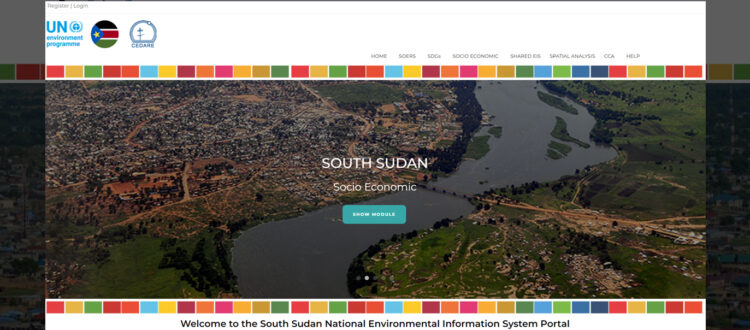Systemic, Institutional, and Individual Capacity for the Implementation of the Rio Conventions in the Republic of South Sudan
The project aims to develop an environmental knowledge and information management system to enhance data availability, exchange and use for strengthened decision-making and governance in South Sudan. It will involve facilitating an inception meeting to define the scope and focus areas for the system based on a review of the existing situation and capacities. The project will gather information on current best practices for versatile systems to inform the design. It will identify the core national data producers and their mandates related to environmental SDGs, Rio Convention reporting and indicators. The project will formulate an appropriate legislative framework to underpin the information system and facilitate access to environmental data. A 5-module web-based system will be designed with interactive sections for statistics, indicators, reporting, spatial information, and data sharing. Training programs will be developed and delivered to build capacities of national experts and institutions on managing and utilizing the knowledge platform.
Partners
South Sudan, and UNEP
Region / Country
South Sudan
Objectives
- Develop an environmental knowledge and information management system to enhance data availability and use for decision-making.
- Identify core data producers and establish coordination mechanisms for information exchange on Rio Conventions and SDGs.
- Strengthen technical capacities of government agencies on data collection, management and sharing.
- Formulate a legislative framework to facilitate access to environmental information.
- Design an integrated web-based system with modules for statistics, indicators, reporting, spatial data, and information sharing.
- Provide training to build expertise on managing and utilizing the knowledge platform.
- Improve the compliance and reporting capacities of South Sudan on its Rio Convention commitments.
- Promote evidence-based and knowledge-driven environmental governance and policymaking.
- Enhance South Sudan’s progress towards relevant national and international sustainable development commitments.
Timeline
From – To 2021 – 2023
Outcomes
- Report on institutional capacities and data exchange framework,
- Review of best practices for information management systems,
- List of core data producers and indicators,
- Draft legislative framework,
- 5-module web-based system,
- Training on using and managing the system.
Publications/website/portal
South Sudan National Environmental Information System Portal
https://cedarekmp.net/southsudan/
Relevance to SDGs
- The outcomes would support SDG 17 (Partnerships for the Goals) by enhancing data sharing and stakeholder collaboration on the environment.
- The improved monitoring and reporting strengthen SDG implementation and progress tracking under several SDGs, especially SDGs 13 (Climate Action), 14 (Life Below Water), and 15 (Life on Land). Capacity building contributes to SDG 4 (Quality Education).

